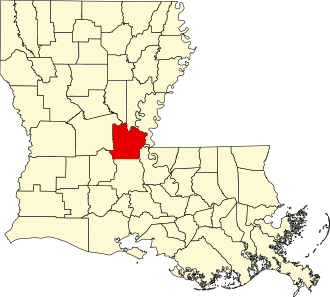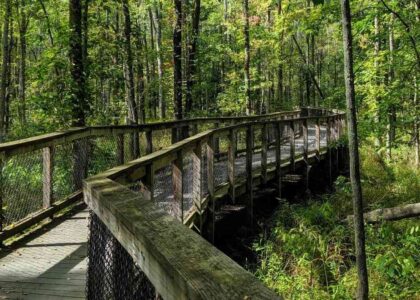Welcome to Avoyelles Parish, a place steeped in rich history and culture, right in the heart of Louisiana. As you journey through this remarkable region, you’ll uncover stories that span centuries, from the ancient earthworks of the indigenous peoples to the vibrant traditions that continue to shape its identity today.
Avoyelles Parish was established in 1807, and its name pays homage to the Avoyel people, an indigenous tribe who once thrived here. With its strategic location at the confluence of the Red, Atchafalaya, and Mississippi Rivers, the area has long been a crossroads for trade and cultural exchange. By the time European settlers arrived, the Tunica-Biloxi Indian Tribe had established themselves, leaving a legacy that endures to this day.
One of the key historical figures who left an indelible mark on Avoyelles was Marc Eliche, an Italian trader. His wagon famously broke down in the area, and captivated by the beauty and hospitality of the land and its people, he decided to stay. Eliche married and established a trading post, laying the foundations for what would become Marksville, the parish seat.
The history of Avoyelles is also intertwined with the broader narrative of the American South. During the Civil War, Fort DeRussy, located nearby, was a site of significant military action. Meanwhile, the parish has been a hub for cultural fusion, blending French, African, and Native American influences to create a unique Creole culture. This is evident in the local music, food, and language that continue to thrive here.
Perhaps one of the most fascinating stories from Avoyelles is that of the Mississippian culture that once flourished here. On the banks of the old Mississippi River channel in Marksville, large burial mounds stand as a testament to a sophisticated society with extensive trade networks. These mounds are part of a broader network that includes the renowned Cahokia Mounds in Illinois.
Today, Avoyelles Parish is not only known for its historical significance but also for its contributions to agriculture, particularly sweet potatoes. The LSU AgCenter has developed a variety named after the parish, highlighting the region’s impact on the state’s agricultural industry.
As you explore Avoyelles, imagine the lives of those who came before—indigenous tribes navigating the waterways in canoes, French settlers establishing trading posts, and modern-day farmers tending to the land. Each chapter adds to the rich tapestry that makes Avoyelles Parish a compelling place to visit or study.
In closing, Avoyelles Parish is a testament to resilience and cultural fusion. Its legacy is carried forward by the Tunica-Biloxi Indian Tribe, the vibrant Creole traditions, and the enduring spirit of its communities. Whether you’re a history enthusiast or simply passing through, Avoyelles offers a window into the past and a vibrant community that continues to celebrate its diverse heritage.




